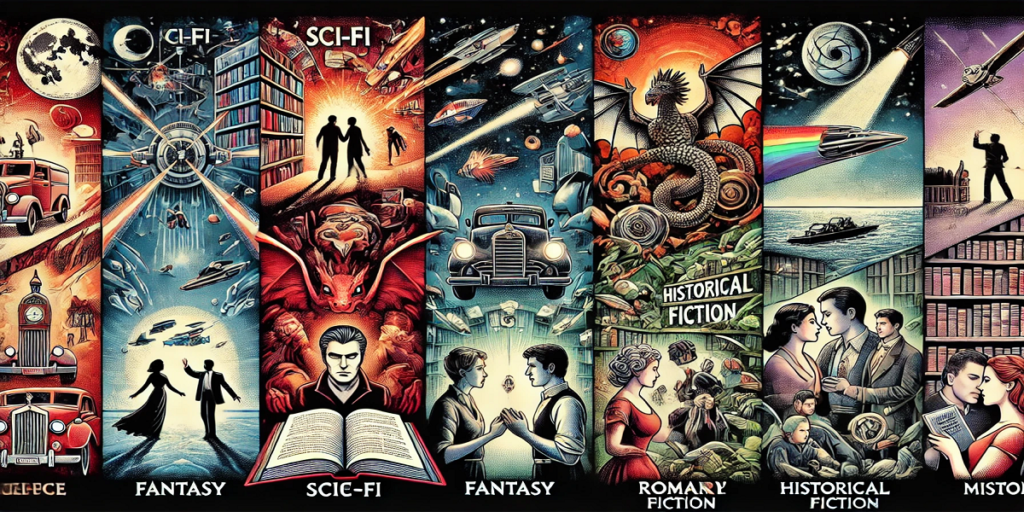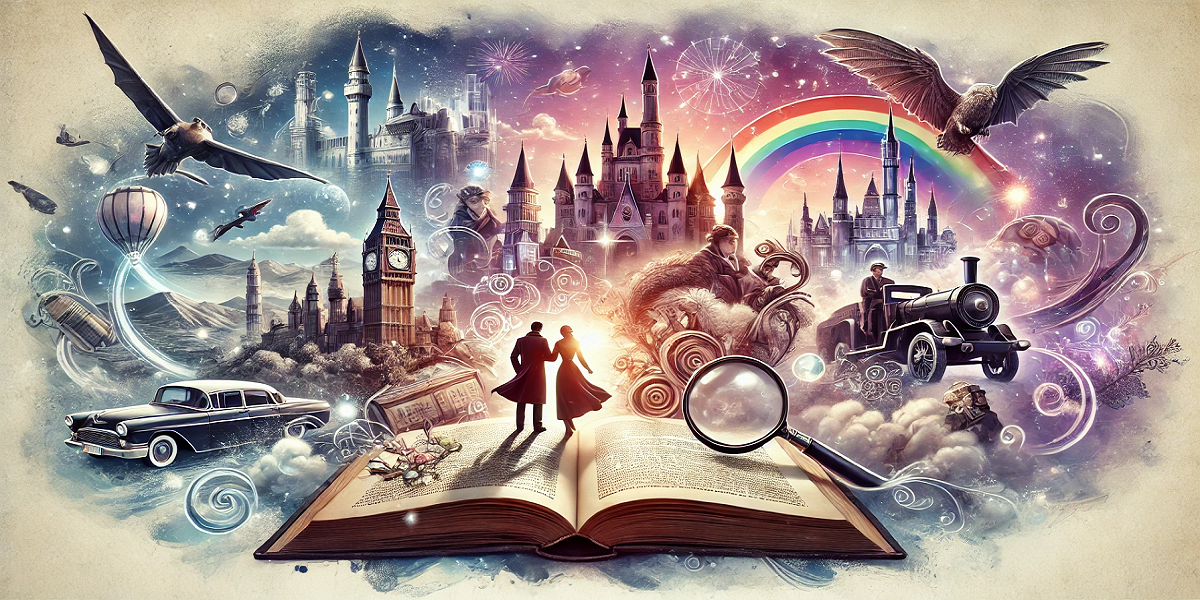Fiction is a fascinating realm of storytelling that allows our imaginations to soar. But what exactly is fiction, and what are some notable examples? In this article, we will explore the essence of fiction, its various forms, and provide examples to help you better understand this captivating genre. Whether you’re an aspiring writer or an avid reader, this comprehensive guide will delve into the world of fiction, offering insights and inspiration.
Fiction is more than just made-up stories; it’s a gateway to different worlds, times, and perspectives. It lets us live a thousand lives and explore countless possibilities. As we dive into the concept of fiction and its many examples, we’ll uncover how this genre enriches our lives and sparks our creativity. So, what is fiction, and why does it captivate us so deeply? Let’s find out.
What is Fiction?
Definition and Characteristics
Fiction refers to literature created from the imagination, not presented as fact, though it may draw from real-life events or people. Its primary purpose is to entertain, but it can also inform, persuade, or inspire. Fiction is characterized by its narrative structure, plot, characters, and settings that are crafted to tell a story. It allows writers to explore human experiences in a way that non-fiction cannot, giving them the freedom to invent, exaggerate, and dream.
Types of Fiction
Literary Fiction
Literary fiction is often characterized by its focus on style, depth, and character development rather than plot. It is considered more ‘serious’ and is often praised for its artistic merit. Literary fiction tends to explore complex themes and is written with an emphasis on prose quality and narrative techniques.
Genre Fiction
Genre fiction, on the other hand, is more plot-driven and adheres to specific genre conventions. It includes categories like science fiction, fantasy, mystery, thriller, romance, and historical fiction. Genre fiction is designed to entertain and often has a broader appeal, drawing in readers who enjoy specific types of stories.
Popular Fiction Genres

Science Fiction
Science fiction, or sci-fi, explores futuristic concepts, advanced technology, space exploration, and often, the impact of science and technology on society. Notable examples include “Dune” by Frank Herbert and “Neuromancer” by William Gibson.
Fantasy
Fantasy fiction involves magical elements, mythical creatures, and fantastical worlds. It’s a genre where anything is possible. Iconic examples include J.R.R. Tolkien’s “The Lord of the Rings” and J.K. Rowling’s “Harry Potter” series.
Mystery and Thriller
Mystery and thriller novels are built around suspense, investigation, and often, crime-solving. They keep readers on the edge of their seats. Famous examples include Agatha Christie’s “Murder on the Orient Express” and Gillian Flynn’s “Gone Girl.”
Romance
Romance fiction centers on love stories and relationships. It explores the emotional journey of falling in love and overcoming obstacles. Popular examples include Jane Austen’s “Pride and Prejudice” and Nicholas Sparks’ “The Notebook.”
Historical Fiction
Historical fiction takes readers back in time, offering a glimpse into different eras through fictional characters and plots. It combines historical accuracy with imaginative storytelling. Renowned examples include Ken Follett’s “The Pillars of the Earth” and Hilary Mantel’s “Wolf Hall.”
Notable Examples of Fiction
Classic Fiction Examples
Classic fiction includes works that have stood the test of time and are considered exemplary pieces of literature. Some notable examples are:
- “Moby-Dick” by Herman Melville
- “Pride and Prejudice” by Jane Austen
- “1984” by George Orwell
Contemporary Fiction Examples
Contemporary fiction refers to works written in recent times, often reflecting current issues and modern life. Examples include:
- “The Road” by Cormac McCarthy
- “The Goldfinch” by Donna Tartt
- “Normal People” by Sally Rooney
The Impact of Fiction
How Fiction Influences Society
Fiction has a profound impact on society by reflecting cultural values, challenging norms, and offering new perspectives. It can shape public opinion, inspire social change, and foster empathy by allowing readers to experience the world through different lenses.
Fiction in Education and Personal Growth
In education, fiction plays a crucial role in developing literacy, critical thinking, and emotional intelligence. It encourages imagination, creativity, and empathy. On a personal level, reading fiction can be a therapeutic escape, providing comfort, joy, and a deeper understanding of oneself and others.
Conclusion
Fiction, in all its forms, is a powerful tool for storytelling and personal expression. It captivates us with its creativity, emotional depth, and ability to transport us to different worlds. Whether through classic novels or contemporary tales, fiction continues to enrich our lives and expand our horizons.

